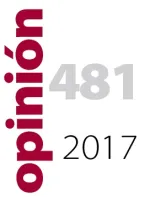South Korea or the Kidnapped Elections

South Korea (finally) has a new president. As all the polls predicted, Moon Jae-in of the Democratic Party of Korea will be the new tenant of the Blue House in Seoul. In the elections of May 9, Moon razed the other candidates with almost 41 percent of the votes. He had been the favorite since the beginning of the election campaign and his popularity had been growing in recent months. However, its agenda - mainly focused on economy, unemployment and corruption - has been conditioned since April to the growing regional tensions due to the North Korean nuclear program. Contrary to popular belief, North Korea is not the main concern of either South Korean public opinion or most of its political leadership. Moreover, Moon maintains a conciliatory relationship with its northern neighbor, in clear contrast with its predecessor and with the American President Donald Trump. While the US is the main strategic ally of South Korea, China remains its main trade partner. Therefore, the victory of Moon is a new element to consider in the complex and dynamic equilibrium of northeast Asia.
The rising tension resulting from Pyongyang's missile tests and the harsh line adopted by Washington against it opened the way to a possible preemptive US attack. In a worst-case scenario, Pyongyang’s potential reprisal could have a devastating effect on Seoul. Hence, international media covered the race for the South Korean presidency and the standpoint of the candidates vis-à-vis this turmoil. For these reasons, international media coverage was dominated by the crisis and the possible military escalation to follow it. This meant that the candidates' agendas were filled with interviews questioning defense issues and their strategy to prevent a possible escalation of the conflict, even if it was not a priority in South Korea’s political agenda. This was in clear contrast with the issues that had dominated the agenda since the crisis around the presidency of the currently impeached Park Geun-hye had erupted.
The last electoral debates, as such, focused on the anti-missile shield and its impact on relations with China. This, combined with the partial coverage of the elections by the international media, may convey the perception that North Korea is the main concern for South Koreans. Yet it is far from being so. Surveys conducted in recent months show unequivocally that the economy, unemployment and corruption are the main concerns of the South Korean society. These issues often dominate the political scene in Seoul far more than they do when it comes to the peninsula’s defense issues. There is a well-established pattern of provocations from North Korea taking place throughout all electoral processes in South Korea. So for many South Koreans, the only novelty - and what really forced the change in the candidates' agendas - has been President Trump's abrupt response to this latest crisis.
It was the attempt to escalate the confrontational rhetoric from Washington that caught the candidates wrong-footed and forced their respective press offices to work against the clock to respond to the growing demand for information on the position of their candidates towards the Terminal High Altitude Area Defense (THAAD), Kim Jong-un or each new statement of and tweet from President Trump. This situation was diametrically opposed to the actual concerns of South Koreans, which were more about the position of each candidate regarding the minimum wage, the chaebols (business empires in the hands of large families in the country) or youth unemployment. In addition, several candidates were virtually unknown to the general public and only six of the thirteen who were running for President were members of parties represented in the National Assembly. In these hasty elections, debates and interviews were fundamental to disclosing each candidate’s proposals and, in some cases, even themselves. Nevertheless, the elections were eclipsed by the crisis, Trump and Kim Jong-un. However, as exit polls carried out by the television channels KBS, MBC and SBS show, the elections were led by domestic concerns: the revitalization of the economy and unemployment were the main concern for 55.1 % of the South Korean electorate, followed from afar by political reform (13.5%) and the North Korean nuclear threat (10.8%).
The power vacuum of the past six months had seriously weakened the ability of South Korea to intervene in high-level meetings held in recent weeks. The representation of South Korea in the three-way meetings with Japan and the US had been hindered by the lack of leadership in the Blue House since last November. Former President Park Geun-hye’s residence confinement and following imprisonment led to the then-Prime Minister Hwang Kyo-ahn to act as president up until the May elections. It was imperative that South Korea resumed contact at the highest level with the major players involved in the crisis of the Korean peninsula.
The newly elected President Moon has taken his first steps in the international - telephone conversations with Presidents Trump, Xi Jinping and Shinzo Abe -, with the clear intention of repositioning South Korea as a key actor and approaching the North Korea crisis through diplomacy. Moon will have to balance his conciliatory intentions with the likely challenges posed by Pyongyang and the divergent interests of the main players in the area. At the same time, he will have to respond to the demand of South Koreans to concentrate efforts on economic issues, inequality and corruption. His main risk now is that his presidency, just like the election, might be kidnapped by North Korea's nuclear program.
D.L.: B-8439-2012